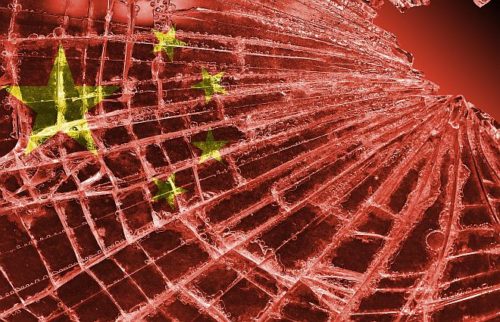Dear Reader,
This time last year, I was strolling up and down the halls of the Fairmont Hotel in Vancouver.
The Sprott Natural Resources Symposium was mere hours away from kicking off. As a guest of Rick Rule, I’d scored an all-access pass to the speeches, workshops, and private functions.
It was a blur of big names, bigger concepts, and some seriously late nights and early mornings.
All the interviews and speeches I heard were quite diverse, yet there was a common theme: A crisis is coming, and no one is prepared.
What a difference a year can make.
Less then six months after the Sprott conference wrapped up, a health crisis was thrown at us. Which was followed by an economic crisis…and there’s risk that a financial crisis isn’t far off.
Given the state of the world today, the Sprott conference is now going digital. That means all big names like Grant Williams, Rick Rule, and Jim Rickards — for example — are sharing their presentations from their home cities.
Furthermore, it means that everyday investors around the world can access this conference if they want to. Although tickets are a hefty $430 Aussie bucks for this three-day event.
I’ll be joining the conference online too. I’ve already lined up a whole host of interviews to share with people over atStrategic Intelligence Australia.
, as well as hosting a couple of live Q & A sessions with some guests.
One of the topics I expect to dominate this year, however, is China and the unfolding crisis we find ourselves in.
It’s safe to say that China isn’t too popular right now. Amidst the ongoing devastation of COVID-19, the Chinese continue to clash with other countries over a number of issues.
The situation between the US and China continues to deteriorate, as Jim Rickards highlights below. But there’s another, lesser-known conflict that’s also worth mentioning.
You can bet I’ll be probing Jim about his thoughts on this at the Sprott conference later in the week.
Read on to find out more.
Until next time,
 |
Shae Russell,
Editor, The Daily Reckoning Australia
[conversion type=”in_post”]
A Hard Break-Up Is on the Horizon
It’s not news that the China–US relationship is on the rocks. Despite the famous ‘Phase One’ trade deal from earlier this year, not much has changed.
China has not lived up to its obligations to purchase more US agricultural output (especially soybeans). The progress on a so-called ‘Phase Two’ deal — involving theft of intellectual property and unfair limitations on US investment in China — is not showing much progress, if any.
China was clearly at fault in the coronavirus pandemic. There are competing views on whether the virus was leaked accidentally from a Wuhan government virus laboratory, or it jumped from animals to humans naturally in one of the notorious ‘wet markets’ that sell bats and pangolins (something like an anteater), which are slaughtered on the spot.
Either way, China clearly covered up the outbreak and allowed Chinese to travel to the US and Europe by the hundreds of thousands to spread the disease before other countries took defensive measures.
This has led to a legal theory that China can be sued for damages, which run into the trillions of dollars, in a US court, and plaintiffs can seize China’s holdings of US Treasury notes to collect any damages awarded. It doesn’t get any tenser than that.
A complete ‘decoupling’?
But maybe it does. As Reuters said recently, Trump is now threatening a complete ‘decoupling’ of the US–China relationship. In its most extreme form, this could mean no investment by China in the US, no purchases of Chinese goods, disrupted supply chains, no Chinese students in US schools, and more. Perhaps relations might be limited to purchases of commodities and not much else.
That’s not as far-fetched as it sounds. The US had almost no economic relations with the former Soviet Union until the late stages of the Cold War, except for sales of wheat. Investors can prepare for Cold War Two by unwinding their allocations in Chinese stocks now before the curtain drops.
The ‘Line of Actual Control’
China’s tumultuous relationship with the US is well documented. Closer to home, however, China is also clashing with its biggest neighbour, India. The world’s two most populous nations fought a pitched battle at 14,000 feet recently.
The battle was fought near the top of the world in the Himalayas. The high peaks form a border between India and China, but the exact border has never been completely delineated or agreed. There is something called the Line of Actual Control (LAC), which is a de facto border based on physical occupation, if not a legal border.
China and India fought a war there in 1962. There have been other skirmishes since then, but no actual casualties since 1975. The two sides agreed years ago that troops in the region would not carry weapons, in order to avoid escalation or casualties.
Suddenly, in June, those precautions went out the window.
China and India engaged in a battle near the LAC using whatever weapons they could improvise, including clubs studded with nails and even bare hands. The Indians suffered about 20 casualties. The Chinese casualties have not been confirmed, but a similar number of Chinese were probably killed.
Some of the casualties were forced off a ridge line into a 5,000-foot ravine, where they either died in the fall or died from exposure soon after. Rescue was almost impossible because helicopters have great difficulty flying at those altitudes.
Expect more conflict
China has been flexing its muscle in the South China Sea and in the direction of Taiwan. Now the China–India border is another hotspot. China may be trying to distract attention from its internal problems or simply trying to intimidate India from improved relations with the US.
India will not take the situation lying down. Look for more conflict in the highest disputed border in the world. This is just one more cause for concern for investors who already have a full plate with the pandemic, stock market volatility, and social unrest.
All the best,
 |
Jim Rickards,
Strategist, The Daily Reckoning Australia

